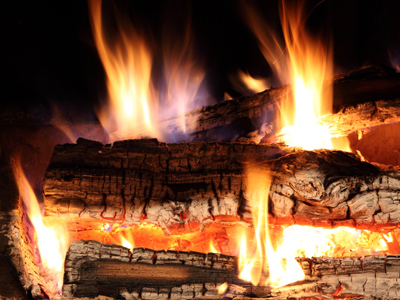
Ask the AI Tutor
Need help with Particles and Energy? Ask our AI Tutor!
AI Tutor - Lucy
Connecting with Tutor...
Please wait while we establish connection

Increasing the temperature causes particles to gain speed and energy.
Particles and Energy
Particles are always moving. In KS2 Science, pupils learn how energy affects particles, causing changes in speed, state, and the way materials behave.
1 .
Particles in which state of matter are tightly packed?
Solid
Liquid
Gas
All of the above
When a substance is solid, its particles do not move around much. Because their particles are so tightly packed, solids keep their shape unless forced to change (i.e. by cutting or squashing)
2 .
What takes place when particles gain enough energy to escape the surface of a liquid?
Condensation
Evaporation
Freezing
Melting
If you heat a liquid up you are giving it energy and it might evaporate
3 .
Which of the following is true of the particles of a liquid?
The particles of a liquid do not move
They move very fast, much faster than the particles of a gas
They are more tightly-packed than the particles of a solid
They are not as tightly packed as a solid's particles, but do not move as freely as those of a gas
Liquids are halfway between a solid and a gas
4 .
What are light particles known as?
Molecules
Electrons
Photons
Neutrons
The clue is in the name! 'Photo' means 'related to light'
5 .
Lowering the temperature of a substance causes its particles to do what?
Speed up
Maintain the same speed
Slow down
Stop moving
Lowering the temperature reduces the amount of energy
6 .
A vibrating object causes air particles to vibrate. These air particles cause other air particles to vibrate, which cause more air particles to vibrate. What is this movement of energy called?
Sound waves
Gravity
Force
Tidal waves
Sound is a vibration in the air
7 .
Which state of matter has particles which move very fast?
Solid
Liquid
Gas
Solids and liquids
The particles in gases move much faster than those in a liquid and those of a solid hardly move at all
8 .
Sound waves can cause which of these to vibrate?
Particles of a solid
Particles of a liquid
Particles of a gas
All of the above
This is why sound can pass through almost any material
9 .
Increasing the temperature causes particles to gain what?
Speed
Energy
Mass
Speed and energy
The energy speeds up the particles so they are gaining both speed and energy
10 .
Sound waves travel fastest through which material?
Solids
Liquids
Gases
Sound waves don't change their speed
Vibrations can be passed along more quickly when particles are closer together, as they are in a solid
**Unlimited Quizzes Await You! 🚀**
Hey there, quiz champ! 🌟 You've already tackled today's free questions.
Ready for more?
Ready for more?
🔓 Unlock UNLIMITED Quizzes and challenge yourself every day. But that's
not all...
not all...
🔥 As a Subscriber you can join our thrilling "Daily Streak" against other
quizzers. Try to win a coveted spot on our Hall of Fame Page.
quizzers. Try to win a coveted spot on our Hall of Fame Page.
Don't miss out! Join us now and keep the fun rolling. 🎉
**Unlimited Quizzes Await You! 🚀**
Hey there, quiz champ! 🌟 You've already tackled today's free questions. Ready for more?
🔓 Unlock UNLIMITED Quizzes and challenge yourself every day. But that's not all...
🔥 As a Subscriber you can join our thrilling "Daily Streak" against other quizzers. Try to win a coveted spot on our Hall of Fame Page.
Don't miss out! Join us now and keep the fun rolling. 🎉






